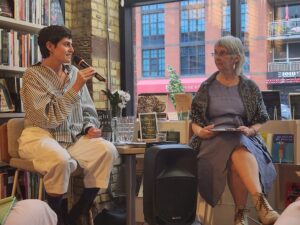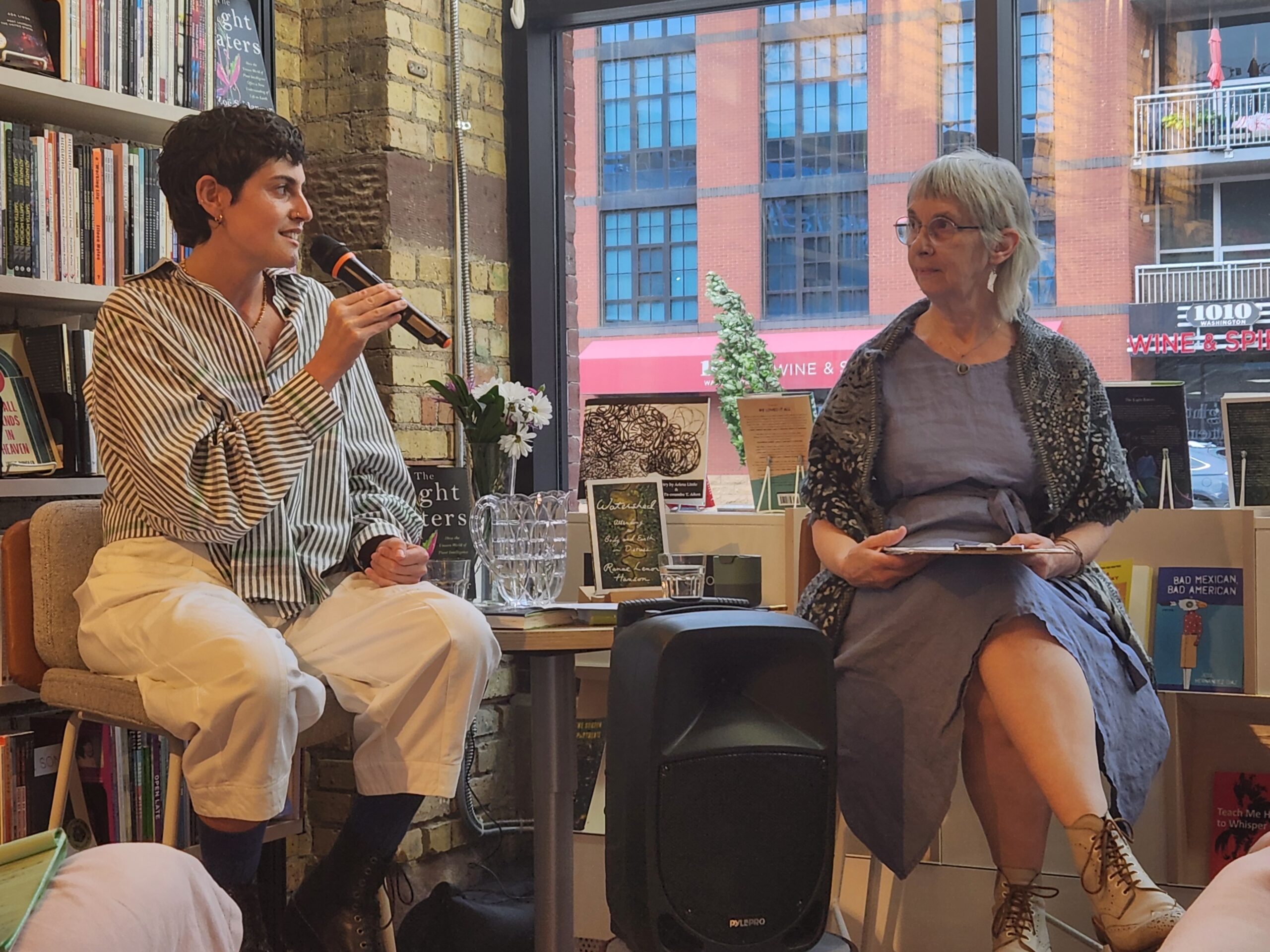Plants can do WHAT???
October 6, 2024
0
I’ve learned a great deal about plants from Zoë Schlanger. We were in conversation with a roomful of others at Milkweed Bookstore in June. And now I’m making a pitch for you to read her book – The Light Eaters: How the Unseen World of Plant Intelligence Offers a New Understanding of Life on Earth. Here are some of the jewel-like ideas from the book –
- Sagebrush has dialects, rather like songbirds do. It can send signals that are better understood by closely-related sagebrush or it can switch to signals that are more universally understood.
- Plants can mimic other plants like rye began mimicking wheat long ago.
- Plants can be said to have personalities. Some seeds from a parent grow up to be more aggressive while other seeds grow up to be more generous. It’s good to plan a mix of both types in a field because it does better than a field full of only one personality (like people have been selecting for only the aggressive).
- Plants have memory and can time the release of nectar to when pollinators tend to arrive; they can remember the length of time between visits and predict when the next visit will come.
- One plant, boquila, can change its form to look almost exactly like any other plant it is near.
- Some plants use tools.
- One plant physically plants its own seeds in the ground next to it, bending over, so to speak.
- Plants have electrical waves coursing through them, which might be communication or even thought – but of course, we have to decide what those words mean before we can say for sure.
- Some plants hunt in packs – right, I know, incredulous. Read the book to know how that works.
- There is a slug (thus, an animal) that eats green algae and can, for the rest of its life, photosynthesize light – so is it then a plant?
- We humans might be thinking that plants are not sentient because they don’t have a localizable brain, but maybe the whole plant is a brain. Whether or not it is, the book will convince that plants are sentient in a way we cannot quite fathom.
The overall point of the book is that plants have autonomy, they are “selves.”
Read the book and you’ll never overlook plants again.

Zoë and me in conversation at Milkweed
